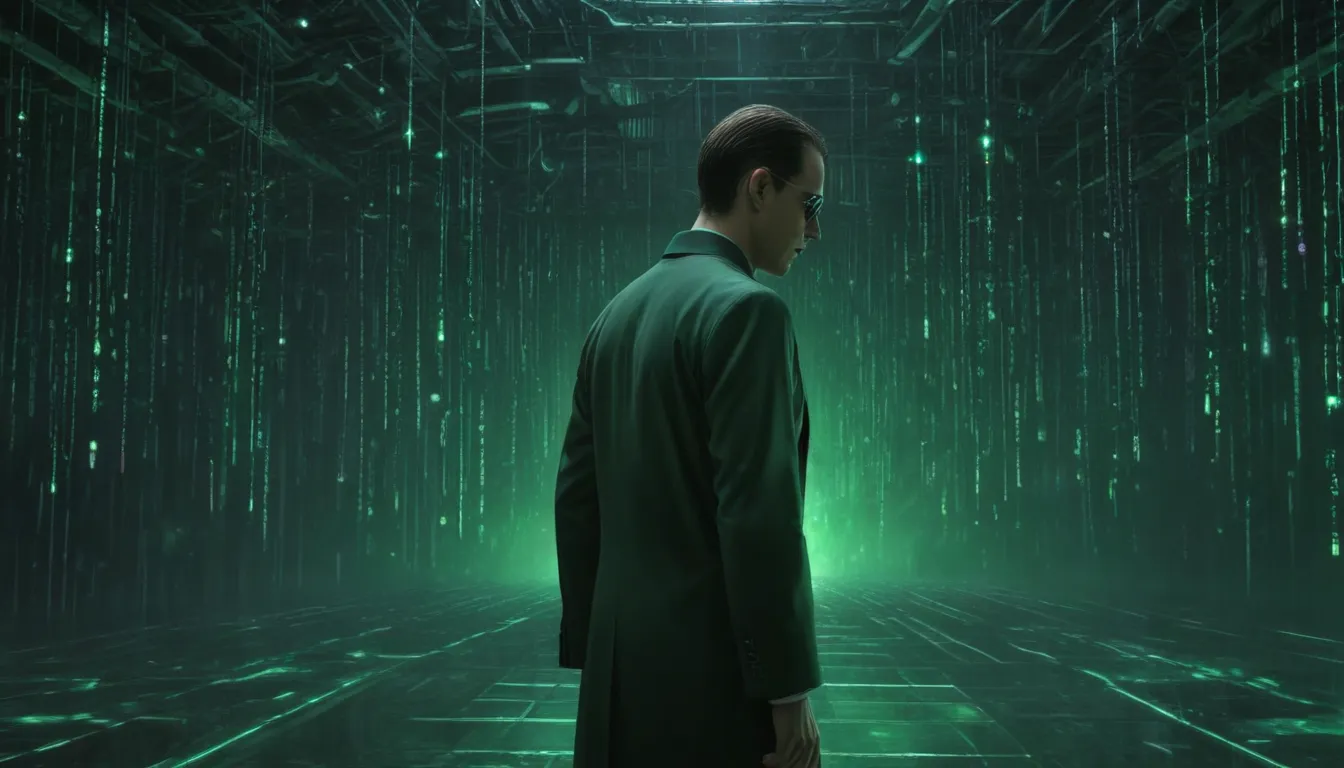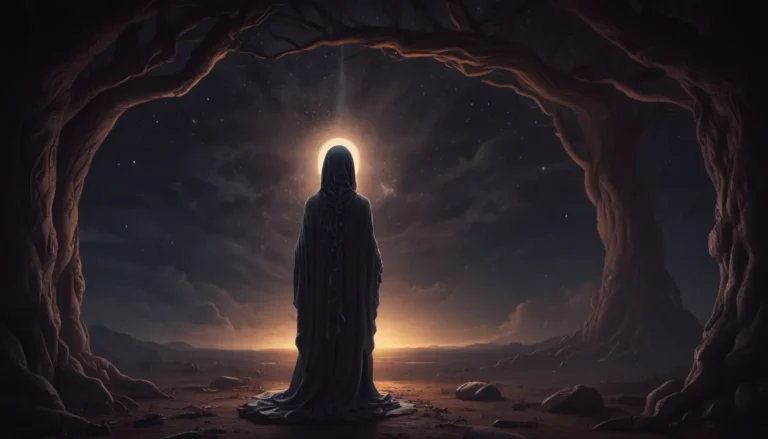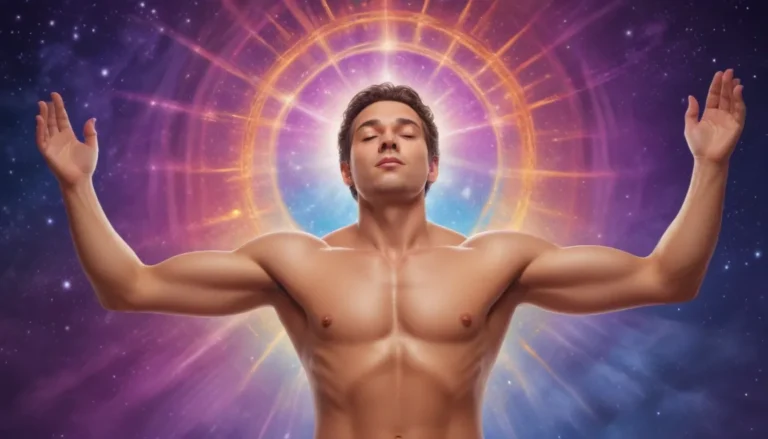
The Matrix (1999) is a groundbreaking science fiction movie that has captivated audiences for over two decades. With its unique blend of action, philosophy, and technology, it presents an intriguing exploration into the nature of reality and our place within it. One aspect of the film that has fascinated viewers is its spiritual meaning, as it delves into themes such as consciousness, free will, and the pursuit of truth. In this comprehensive guide, we’ll explore the various ways in which The Matrix can be interpreted from a spiritual perspective.
I. The Nature of Reality
The Matrix presents a world where humans are unknowingly connected to a virtual reality simulation created by sentient machines. This raises profound questions about the nature of our reality and what it means to be conscious. One possible interpretation is that the film suggests we live in a dream-like state, oblivious to the true nature of existence.
“What is real? How do you define ‘real’?” – Morpheus, The Matrix
This idea resonates with spiritual teachings like Buddhism and Advaita Vedanta, which emphasize that our everyday experiences are merely illusions created by the mind. By awakening from this illusion, we can achieve enlightenment and gain a deeper understanding of reality.
II. Free Will vs. Determinism
Another central theme in The Matrix is the debate between free will and determinism – the idea that our actions are predetermined by external forces beyond our control. Throughout the film, characters grapple with this question as they struggle against the system controlling their lives.
“There’s a difference between knowing the path and walking the path.” – Morpheus, The Matrix
From a spiritual perspective, this dilemma mirrors the age-old debate between Eastern (deterministic) and Western (free will) philosophies. By embracing our ability to choose our own path, we can transcend these limitations and live according to our true nature.
III. The Pursuit of Truth
The journey of Neo, the protagonist, is primarily driven by his quest for truth. As he uncovers the lies perpetuated by the Matrix, he must confront his own beliefs about reality and question everything he thought he knew. This reflects the spiritual idea that seeking truth is an essential aspect of personal growth and self-realization.
“You have to let it all go… Fear, doubt, and disbelief.” – Morpheus, The Matrix
In many spiritual traditions, such as Taoism and Sufism, the pursuit of truth involves overcoming our attachment to worldly desires and ego-centric beliefs. By letting go of these limitations, we can gain access to higher levels of consciousness and understanding.
IV. The Power of Choice
The Matrix emphasizes the importance of choice as a means of asserting our individuality and breaking free from oppressive systems. This idea is encapsulated in the famous line: “There is no spoon.” By choosing not to see the spoon as an insurmountable obstacle, Neo demonstrates the power of belief and intention in shaping our reality.
“You’ve been living in a dream world, Neo. This is the real world! And though you may have taken an inordinate amount of shit from me, I am still trying to help you.” – Morpheus, The Matrix
From a spiritual standpoint, this concept resonates with ideas like “The Law of Attraction,” which posits that our thoughts and beliefs shape our reality. By consciously choosing to see ourselves as capable and empowered individuals, we can overcome obstacles and create the life we desire.
V. The Role of the Teacher
Throughout the film, Morpheus serves as a mentor and guide for Neo on his journey towards self-discovery. This relationship reflects the importance of spiritual teachers in helping us navigate the complexities of life and reach our full potential.
“I can only show you the door. You’re the one that has to walk through it.” – Morpheus, The Matrix
In many spiritual traditions, such as Christianity and Buddhism, the role of the teacher is crucial in guiding seekers along their path. By providing wisdom, support, and inspiration, they help us cultivate the necessary qualities to awaken our true nature.
VI. Conclusion: Finding Balance
The spiritual meaning of The Matrix invites us to explore our relationship with reality, choice, truth, and guidance. As we delve into these themes, we can gain valuable insights into our own lives and the world around us. Ultimately, the film encourages us to embrace our individuality, question our beliefs, and seek out the truth for ourselves – all essential aspects of spiritual growth and personal transformation.
By incorporating these lessons into our daily lives, we can cultivate a sense of balance between the physical and metaphysical realms. In doing so, we may begin to see that the true nature of reality is far more complex and interconnected than we ever imagined – much like the Matrix itself.





